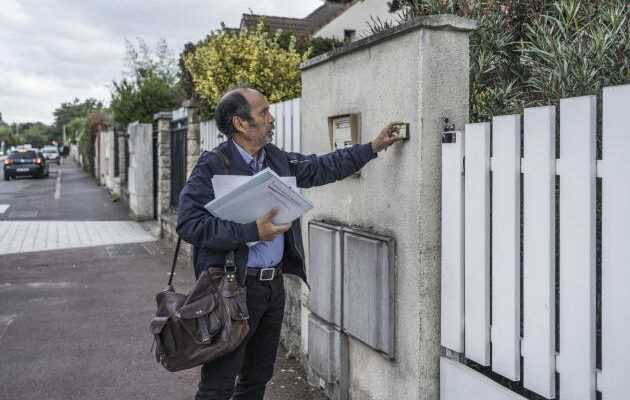ReportingFragments of France | After a year of interruption due to the Covid-19 epidemic, the 800 investigators from the National Institute of Statistics and Economic Studies have taken to the road to question the French about their life, their morale, their family, their work.
The little house is there, not far from the RER station, just before Roissy airport. The pavilions are neat, side by side, each with its own little garden. Kids are playing soccer in the street. There are a few bars of buildings on the other side of the tracks, but on this side it’s quiet, everyone says it. The gate of the house is open.
“Hello madam, I am coming for the INSEE survey.
– Is it to know in relation to people who work and those who are unemployed?, asks the lady, who has accepted the meeting without really knowing.
– Yes that’s it. For example, we have situations of partial unemployment, the State wants to know how many people that represents… ”
Michel Razafimanantsoa, investigator for the National Institute of Statistics and Economic Studies (Insee), came several times to do his scouting in the area. He is just starting the field surveys again, interrupted at the start of the Covid-19 epidemic.
Since the end of the summer, they are 800 like him to have taken the road again, ringing people to talk about their lives and collecting thousands of data that will become disembodied figures. They are the last to go door-to-door, visiting the countryside, wealthy suburbs or cities, the heart of Paris or forgotten rural areas. Few experts know as much about the state of the country, its difficulties, its fears, its relationship to the State and to institutions.
Everything here seemed to indicate that it would be easy. It’s not always the case. People are suspicious and often do not know INSEE. Or associate it with the State, whose image has been damaged. “You are from the Gestapo! “, a cranky lady said to one of her colleagues in Brittany. Those who are hiding are not necessarily those we imagine. Families in an irregular situation shy away as much as the Parisian business lawyers, who pretend to be overwhelmed with work.
To facilitate contact, the investigator simplified his name of Malagasy origin, which he found too long, and introduced himself as “Michel Raza”.
Intrusive and formal questions
For the couple in their thirties with two children who live in this pavilion, life is simpler than for others in the neighborhood. He has a small duvet at the top of his head, a beard under his mask, and wears a PSG jersey. Both are on permanent contracts, she in logistics, he is a truck driver, category “Super heavyweight », He specifies, adding that he will work in electric scooter. He earns more than her. They are comfortable, inserted, healthy and vaccinated. They even offer a coffee.
You have 78.97% of this article left to read. The rest is for subscribers only.
